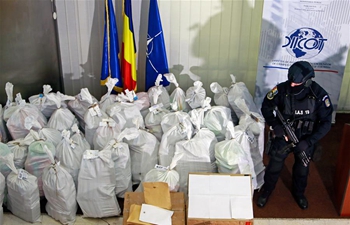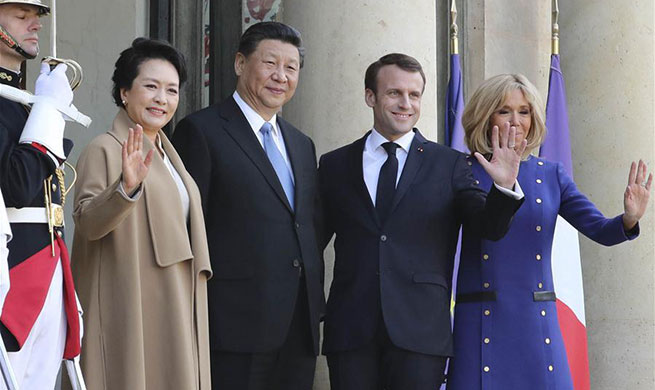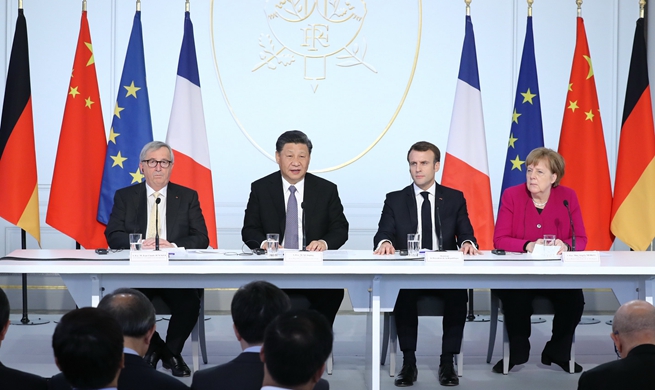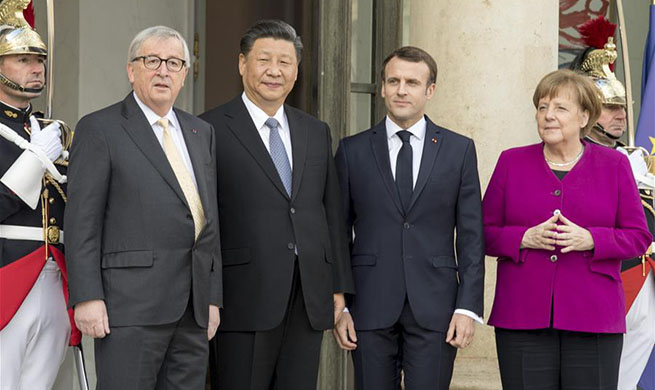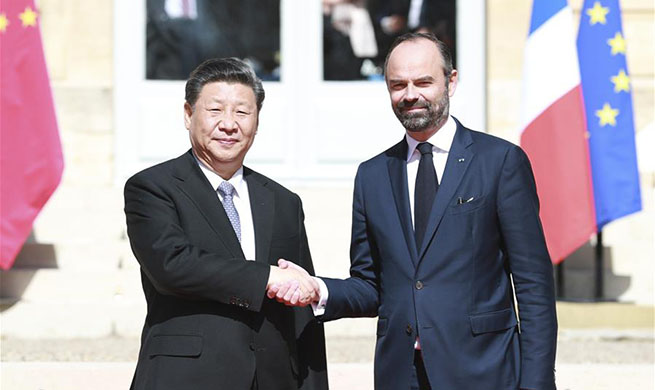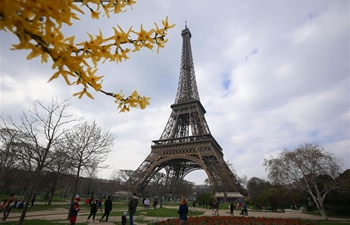by Xinhua writers Gu Zhenqiu, Gui Tao
LONDON, March 27 (Xinhua) -- British MPs on Wednesday voted against all eight alternatives to Prime Minister Theresa May's Brexit deal, meaning a failure in the legislature to find consensus on how to replace the unpopular withdrawal agreement.
None of eight indicative votes gains majority, with customs union option coming closest. The Brexit deadlock will hang on in the country as lawmakers fail to find a majority for an alternative to May's Brexit deal.
The voting, which is aimed at breaking the current Brexit deadlock, took place after MPs voted to take control of Wednesday's parliamentary business.
The vote results, which just confirmed the delay of Brexit date to April 12 or May 22, did not build on the consensus on how to push forward the stalled Brexit process.
The British government had already agreed, under international law, with the European Union (EU) for an extension to quitting the regional bloc until at least April 12.
All major differences remain unchanged over how the country will leave the EU. However, one thing is for sure: Brexit will not happen on March 29, the original departure date.
At least 30 Tory hardline Eurosceptics were later said to still be opposed to May's deal, news reports said here. If true, it would still appear difficult for the prime minister to get her deal across the line.
The Democratic Unionist Party, which props up May's minority government, still showed no sign of falling in line to support her.
Jeremy Corbyn, leader of the opposition Labour Party, criticized Wednesday the government for being "chaotic" and "incompetent" in the face of the Brexit impasse.
It was hoped that Wednesday's parliamentary votes would establish a path towards the UK's divorce from the EU. However, the deadlock remained as none of the suggestions secured a clear majority on Wednesday night.
After the Wednesday vote, the British Brexit secretary, Stephen Barclay, said the results strengthened the government's view that May's Brexit deal was the best and only way forward.
On the lack of a majority for any of the eight alternatives put to the vote on Wednesday, he said, "It demonstrates that there is no easy option here, that there is no easy way forward."
After long debate in the House of Commons, most of British lawmakers reject a second Brexit referendum and the no-deal Brexit, which is also the last thing the EU is willing to see.
Earlier Wednesday, May told MPs that she will quit as prime minister if the British parliament backs her Brexit plan, which was voted down twice by large margins in the parliament since January.
In appealing to Tory MPs to support her Brexit deal, the prime minister said that she will step down earlier than planned.
Her offer to stand down came in response to calls from a number of her backbenchers for her to name the date of her departure in return for their help in pushing the deal through the parliament.
The delay is intended to get more time to bridge gaps among major British Brexit players, but the tactics may need to be changed to break the Brexit deadlock.





